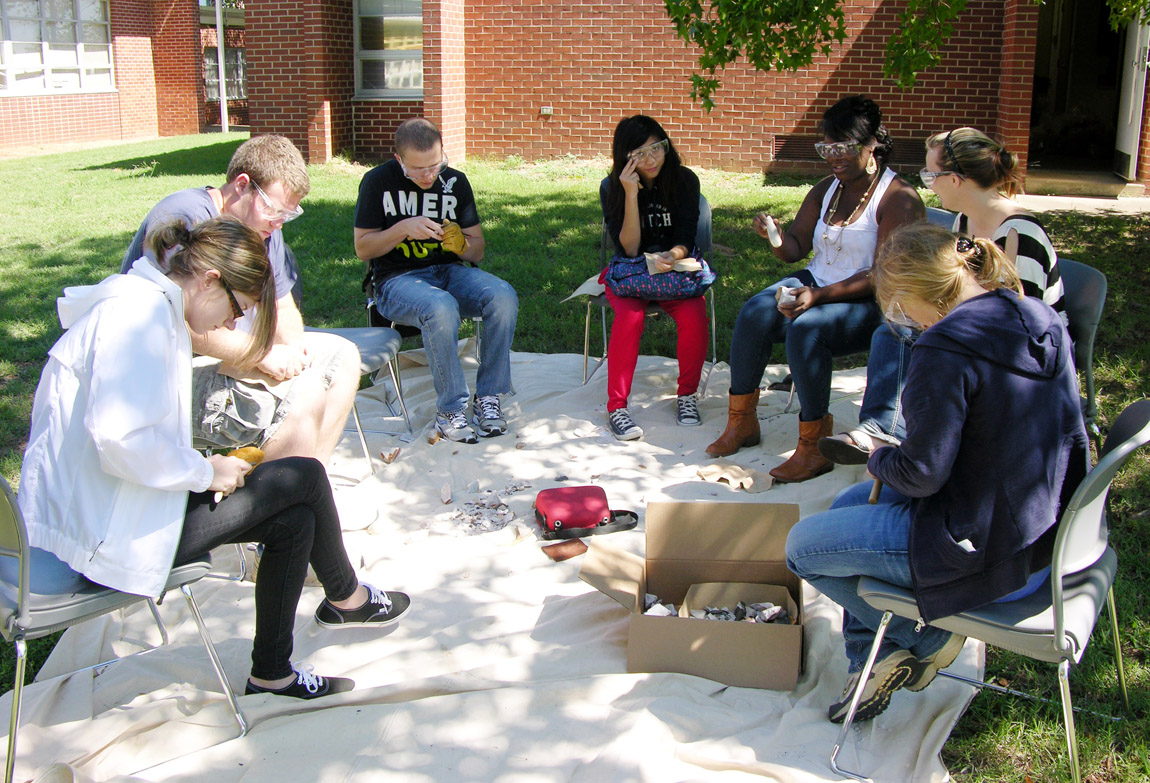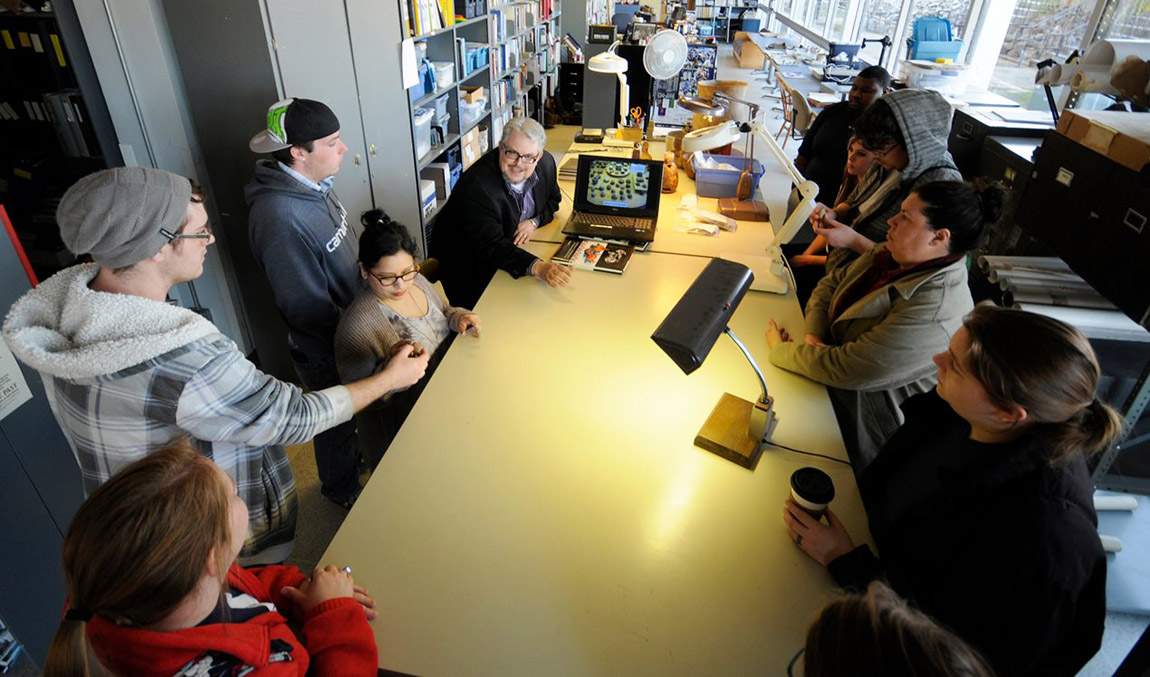
Mary Beth Trubitt, HSU Arkadelphia Research Station
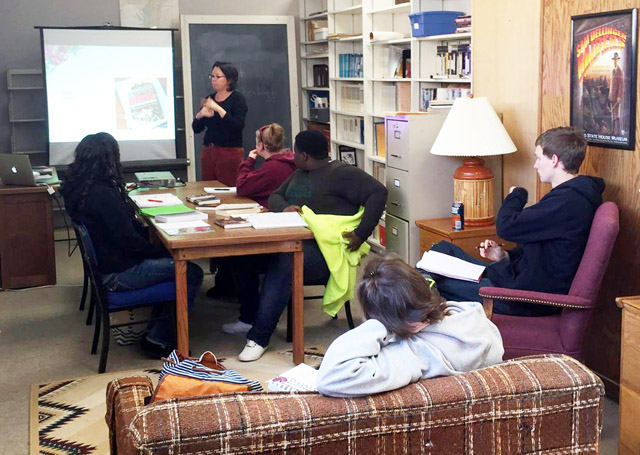
Most of the Arkansas Archeological Survey’s Research Stations are located on campuses of Arkansas universities. Since 1967, Survey archeologists have taught a wide variety of anthropology and archeology courses as service to these host institutions. Often we were the only anthropologists on campus.
Survey archeologists contribute to university programs in Arkansas by teaching courses, providing career advice to students and alumni, mentoring undergraduate student researchers, and serving on graduate student thesis and dissertation committees. Opportunities for experiential learning are available at the Survey Research Stations as students assist the professionals with archeological fieldwork, analyze artifacts in archeology labs, design local exhibits, and participate in internships. Undergraduate and graduate student research has led to presentations—for the public and at professional conferences—and publications.
At the University of Arkansas’s main campus in Fayetteville, undergraduate students can major or minor in anthropology. Graduate students can earn their M.A. or Ph.D. degrees in anthropology. Students at UAF can also earn a Ph.D. in Environmental Dynamics, an interdisciplinary program housed in the Graduate School and International Education. Survey Director Dr. George Sabo currently is the assistant director of the ENDY program in Fayetteville. Arkansas State University offers a Ph.D. in Heritage Studies. Minors in anthropology are offered at Henderson State University and the University of Arkansas - Fort Smith. Some universities, like the University of Arkansas at Monticello, allow students to create their own minors by working with the Survey archeologist.
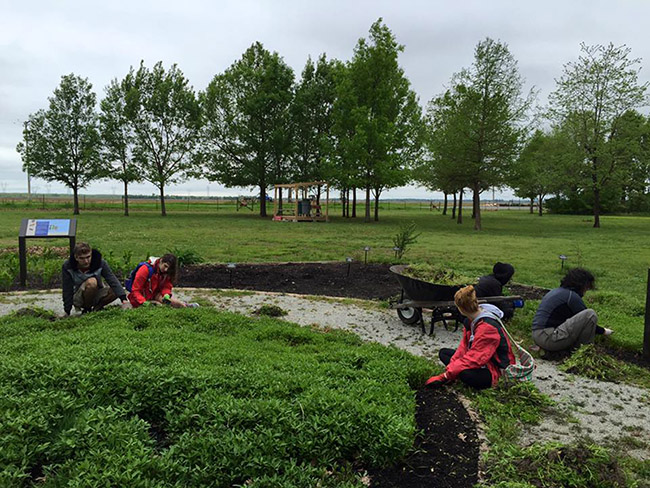
Save
Save
Save
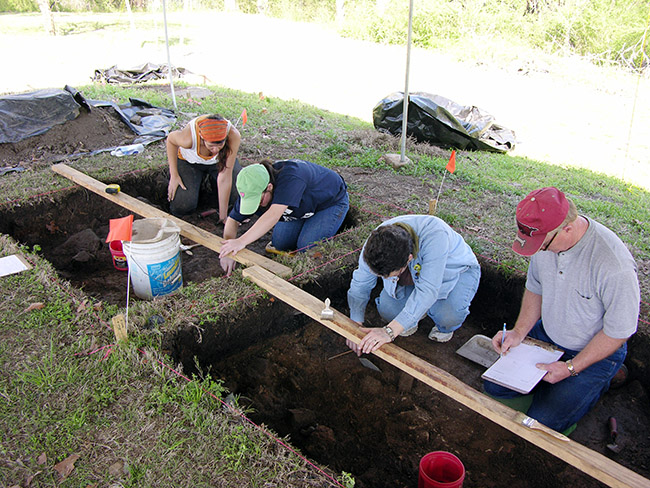
Save
Save
Save
Save
In 2017, undergraduate and graduate students across the state can take these courses taught by Arkansas Archeological Survey archeologists at Arkansas State University, Henderson State University, Southern Arkansas University, and University of Arkansas campuses in Fayetteville, Fort Smith, Monticello, and Pine Bluff:
-
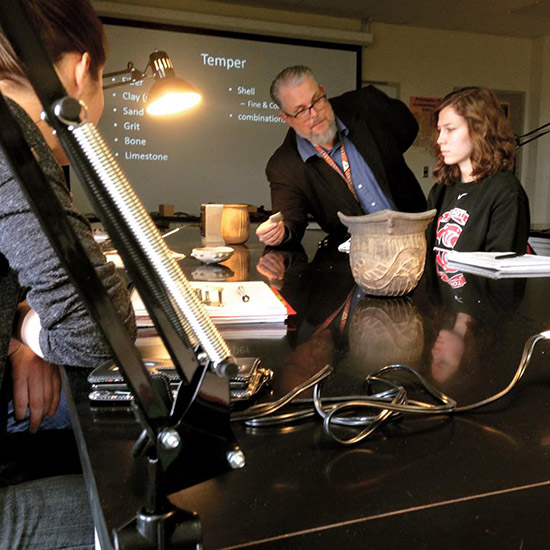
Students in Dr. Jamie Brandon’s courses learn by working directly with artifacts in the classroom and lab. World Cultures
-
Peoples and Cultures of Africa South of the Sahara
-
North American Indians
-
Native American Cultures of the Midsouth
-
General Anthropology
-
Introduction to Anthropology
-
Cultural Anthropology
-
Introduction to Archeology
-
Introduction to Cultural Anthropology
-
Introduction to Physical Anthropology
-
Field Methods in Archeology
-
Historical Archeology
-
Cultural Resource Management
-
Geographic Information Systems
-
Sex, Gender, and Culture
-
Society and Environment
-
Special Topics – Archeological Fieldwork
-
Independent Study
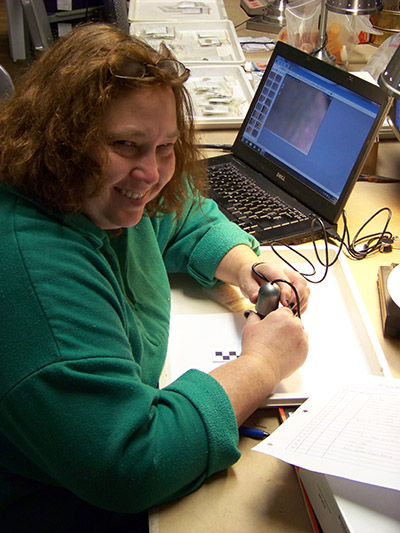
Though not all stations are hosted at universities, all the Arkansas Archeological Survey station archeologists participate in mentoring and training Arkansas students. At the Toltec Mounds Research Station, Dr. Elizabeth Horton works closely with students from the University of Arkansas at Little Rock. By working closely with colleagues at UA Little Rock, Horton provides easily accessible hands-on field and lab experience for Introduction to Archaeology and Research Methods courses. Students from area institutions such as UA Little Rock, University of Central Arkansas, University of Arkansas at Monticello, Hendrix College, and Pulaski Technical College have had opportunities for internships at the Toltec Mounds Research Station. Past interns have produced crucial data about natural threats to the archeological record of Toltec Mounds State Park, acted as assistant field supervisors for the basic excavation seminar at the Arkansas Archeological Society’s annual Training Program, helped document and curate archeological assemblages, and used specialized recovery techniques like flotation to recover information about past plant use.
Students who take anthropology classes with Survey archeologists sometimes go on to graduate school in anthropology. More frequently, they attain new knowledge about world cultures and the importance of preserving the archeological past that they apply to their everyday lives. The partnerships with universities offer a vital way for people in Arkansas to learn about the importance of archeology and anthropology.
NOTE: On November 2, 2022, the name of Toltec Mounds Archeological State Park was officially changed to Plum Bayou Mounds Archeological State Park and the ARAS research station was renamed the Plum Bayou Research Station. Learn more...
